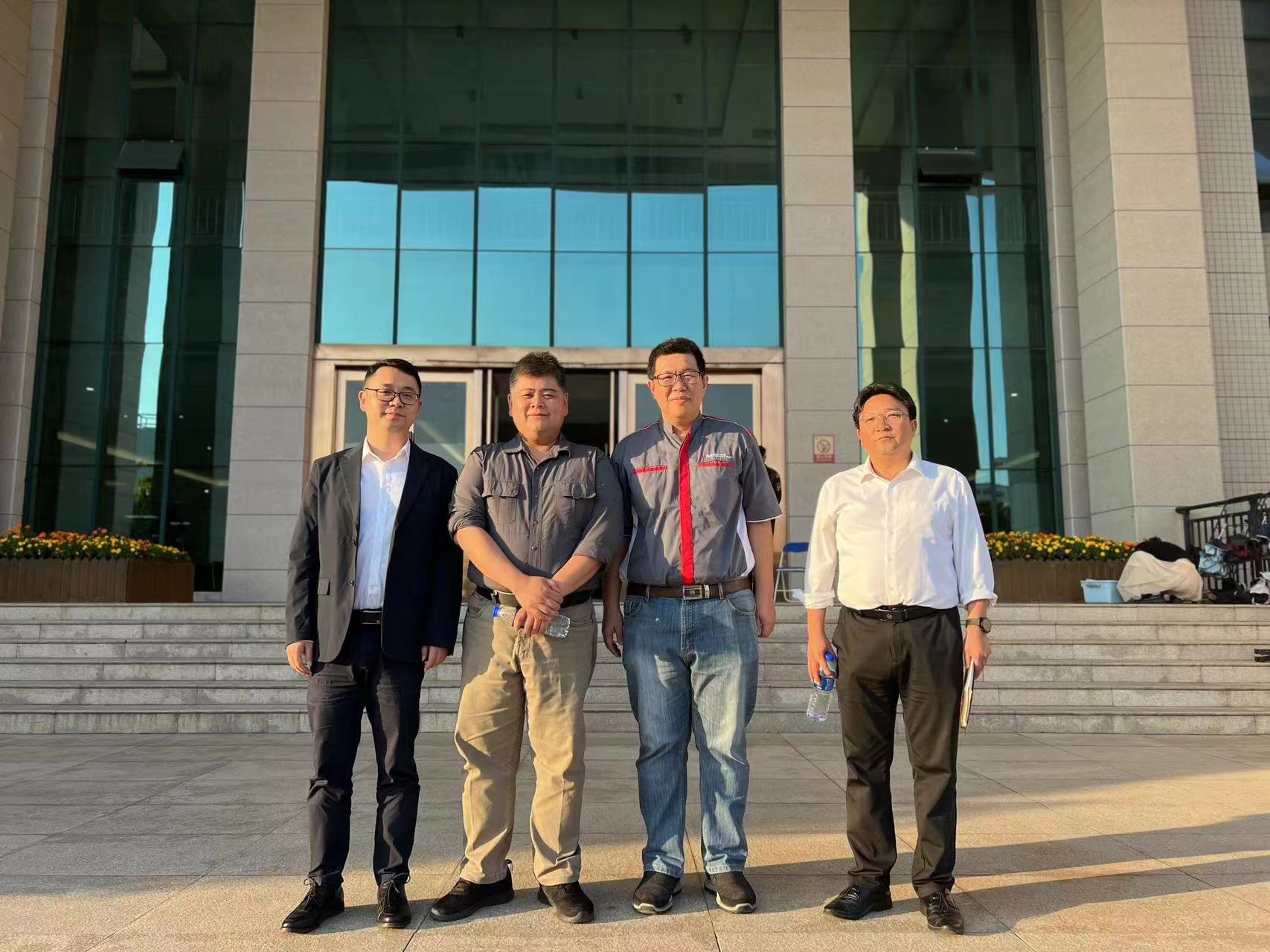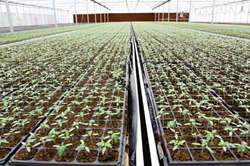In the quest for innovative environmental solutions, nature often surprises us with effective alternatives. A groundbreaking study has found that replacing traditional peat with rice husk ash (RHA) in cultivating cucumbers and melons significantly enhances plant growth and improves fruit quality. This discovery opens up new possibilities for agricultural practices, particularly in Asia, where rice production results in abundant rice husk waste that can pose serious environmental threats if not managed properly.
Rice husk waste, a byproduct of rice production—a significant agricultural activity in Asia—poses serious environmental threats when not managed properly. However, rice husk ash (RHA), made from carbonised rice hulls, has shown beneficial properties that are effectively applied in agriculture. Despite the extensive research on substrate formulations for cucumber and melon seedlings, few studies have examined the impact of RHA on these crops.

(From left) Li Meng, Chief of Office at the College of Horticulture, Xinyang Agriculture and Forestry University, China; Associate Professor Dr Mohd Shazrul Fazry Sa’Ariwijaya, Head of Tasik Chini Research Center at Universiti Kebangsaan Malaysia; Associate Professor Dr Douglas Law Sie Nguong, Senior Lecturer at the Faculty of Health and Life Sciences, INTI International University, Malaysia; and Prof. Gong Shoufu, Dean at the College of Horticulture, Xinyang Agriculture and Forestry University, China, have discovered that using rice husk ash (RHA) as a planting substrate in soilless cultivation for cucumbers and melons can significantly improve plant growth, fruit quality, and overall crop productivity.
Dr Douglas Law Sie Nguong, an Associate Professor and senior lecturer from the Faculty of Health and Life Sciences at INTI International University, leads a team of researchers from Malaysia and China. They are investigating new cultivation mediums, such as RHA, which could decrease the industry’s reliance on peat.
“RHA contains high levels of silica, which enhances mechanical strength and disease resistance in plants,” explains Dr Douglas. “This study explores the use of RHA as a substrate in soilless cultivation for the Cucurbitaceae family, aiming to improve yields, dry matter, chlorophyll content, and support callus induction and rooting.”
Dr Douglas further notes, “Cucumber (Cucumis sativus L.) and Melon (Cucumis melo L.), known in China as Yuyi Longxiang and Yutian Yangjiaomi, are nutrient-rich and highly demanded in the market.”
Published in Nature Scientific Reports, the study urges rice farmers to repurpose rice husks for agricultural purposes, thereby mitigating environmental pollution and potentially providing an additional income source for economically disadvantaged farmers.
“The optimal mix, RHA 40, enhances airflow in the soil, strengthens plant stems, promotes healthier roots, and increases photosynthesis efficiency,” Dr Douglas elaborates. “This mix boosted individual fruit weights by approximately 35% for cucumbers and 22% for melons compared to traditional mixes. Fruits grown in RHA 40 also had higher sugars, vitamin C, and proteins, making them healthier.”
RHA 40 also increased the activity of enzymes like sucrose synthase (SS) and sucrose phosphate synthase (SPS), which arecrucial for sucrose synthesis. Due to its excellent physicochemical properties, it showed superior performance as a local growth medium.
Compared to pure peat and other peat mixtures, RHA-based substrates demonstrated advantages in several growth parameters, including stem diameter, root activity, seedling index, chlorophyll content, net photosynthetic rate, and transpiration rate. RHA also retains nutrients and improves soil structure, contributing to long-term soil fertility.
Using rice husk ash as a sustainable alternative to traditional peat for cultivating cucumbers and melons presents a promising opportunity. Farmers can reduce environmental pollution and enhance plant growth and fruit quality by repurposing rice husks, thus lowering the carbon footprint associated with traditional peat extraction and usage. Further research and implementing RHA-based substrates could lead to substantial economic and ecological benefits for agriculture, paving the way for a more sustainable and productive future.

Trial plot of cucumber seedlings planted using rice husk ash at the greenhouse of the Internet of Things in Xinyang Agriculture and Forestry University Intelligent Horticulture Experimental Base, China.